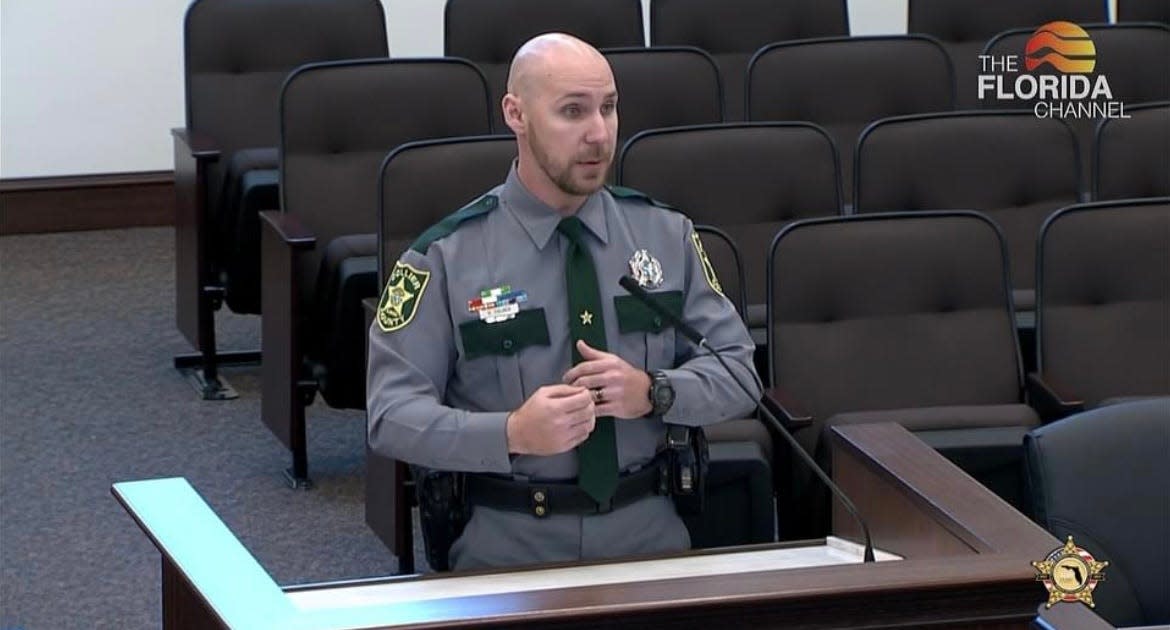Gov. Ron DeSantis signs into law bill that will protect law enforcement, first responders

- Oops!Something went wrong.Please try again later.
A bill aimed to protect first responders from fentanyl, which originated in Southwest Florida, will take effect this fall after Gov. Ron DeSantis signed it into law.
DeSantis approved Senate Bill 718 on April 8.
Collier County Cpl. Robert Palmer testified in March to the Florida Senate Appropriations Committee on Criminal and Civil Justice in support of a bill that would charge adults with a second-degree felony for exposing first responders to fentanyl.
A deputy's experience: Collier County deputy speaks for FL bill that could make injuring first responders punishable
The sheriff's office said Palmer suffered a fentanyl exposure in April 2023 while on a domestic call. He lost consciousness and his sergeant administered two doses of the reversal medication Narcan.
Palmer was taken to a hospital and discharged, but the sheriff's office said his symptoms, including fogginess and vertigo, lingered for days.
"We're used to being able to react to physical threats, being able to see a physical threat on scene," Palmer testified. "Whether you're a law enforcement, fire, EMS ... We can see and react to that."
Palmer testified fentanyl is "invisible," leaving first responders with "no way to react" until symptoms take effect.
"This is an invisible death that is now stalking scenes that we go to," Palmer testified. "And my scene wasn't anything that had to do with drugs. It was a domestic disturbance that came through dispatch."
Palmer said next thing he knew he was "falling out" from a fentanyl overdose. Michelle Batten, spokesperson for the sheriff's office, said Palmer has been with the agency since 2017.
"There are really two reasons for it. One is holding people accountable for putting unnecessarily first responders in more danger than we already are. That's the very first thing," Collier County Sheriff Kevin Rambosk said in a statement. "The second thing though, is saving lives. And it's saving lives of our first responders and law enforcement."
Rambosk said the bill is the first of its kind.
"This really means now that all first responders and all law enforcement throughout the state of Florida have a protection that they never had before," Rambosk said.
The bill, which had its first read Feb. 28, will take effect Oct. 1.
Tomas Rodriguez is a Breaking/Live News Reporter for the Naples Daily News and The News-Press. You can reach Tomas at TRodriguez@gannett.com or 772-333-5501. Connect with him on Threads @tomasfrobeltran, Instagram @tomasfrobeltran and Facebook @tomasrodrigueznews.
This article originally appeared on Naples Daily News: Exposing law enforcement, first responders to opioids punishable

